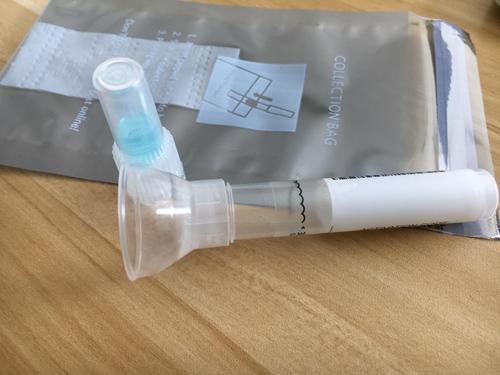Can Data From a Home DNA Test Be Accessed by Law Enforcement?
 Home DNA tests have been gaining popularity in recent years. Some of the biggest players in the home DNA test industry, Ancestry and 23andMe, aim to help people understand their DNA better, from their genealogical roots to their carrier status for certain diseases and their predisposition for certain traits. This technology has allowed people to connect in a way that they never imagined before, but it has also opened the doors for certain ethical considerations, such as whether or not law enforcement officials should be able to access DNA information when investigating those suspected of criminal charges.
Home DNA tests have been gaining popularity in recent years. Some of the biggest players in the home DNA test industry, Ancestry and 23andMe, aim to help people understand their DNA better, from their genealogical roots to their carrier status for certain diseases and their predisposition for certain traits. This technology has allowed people to connect in a way that they never imagined before, but it has also opened the doors for certain ethical considerations, such as whether or not law enforcement officials should be able to access DNA information when investigating those suspected of criminal charges.
Golden State Killer Was Caught Through DNA Use
For decades, the Golden State Killer eluded law enforcement and was able to rape and murder dozens of people. In 2018, law enforcement officials were finally able to charge the man for committing more than 50 rapes and 12 murders across California, thanks to help from an online genealogy database, GEDmatch. Using DNA that was recovered from crime scenes throughout the years, they were able to locate distant relatives of the Golden State Killer and eventually ended up at his front door.
Ancestry and 23andMe Say No to Law Enforcement Use
Though data from GEDmatch was used to crack the Golden State Killer case, this service does not offer kits for performing genetic tests. Instead, it allows its users to upload data about their DNA which was obtained through at-home tests from other companies, including Ancestry and 23andMe. GEDmatch allows its users to opt in or out of allowing law enforcement to use their data. However, it was found that when a police officer obtained a warrant to search the site’s database, more than a million profiles of people who had chosen not to be visible to police were in fact included in the search.
Companies like Ancestry and 23andMe have been under pressure to allow law enforcement officials to access their DNA databases. Researchers have found that allowing access to these databases would essentially allow officials to identify nearly all 300 million Americans through data provided by various family members, which is why law enforcement officials are pushing for access. Currently, both Ancestry and 23andMe require a court order for access to their database, and access has not yet been granted to any official.
Have You Been Accused of a Crime? Our Hartford, CT Criminal Defense Lawyer Is Here for You
In the era of social media, location tracking, and at-home DNA tests, flying under the radar is nearly a thing of the past. Though law enforcement officials currently cannot access your DNA from many of these services without your consent, there is a possibility that they could be able to do so in the future. To ensure that you understand your rights regarding how your personal data can be used in a criminal case, you should consult with an experienced lawyer. If you are facing criminal charges, the skilled Connecticut criminal defense attorney at the Woolf & Ross Law Firm, LLC can ensure that your rights are protected and provide you with the defense you need. To schedule a free initial consultation, contact us today at 860-290-8690.
Sources:
https://www.nytimes.com/2019/12/22/science/dna-testing-kit-present.html
https://www.nytimes.com/2018/04/26/us/golden-state-killer.html






